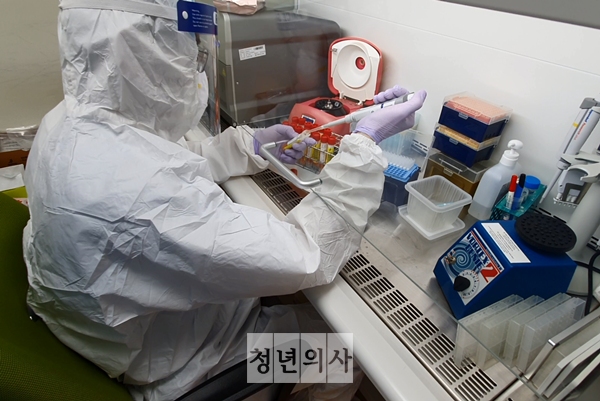Korea is expected to lead the development of international standards for the diagnosis of infectious diseases using the gene amplification method used for in vitro detection kits, the government said.
The Ministries of Food and Drug Safety and Trade, Industry and Energy said on Sunday that ISO/TC 212, a technical committee of the International Organization for Standardization (ISO), approved the “Gene amplification method for detecting microbial pathogens” as a draft international standard (DIS).

Under the ISO procedures, the draft international standard needs approval by the entire member states of the ISO.
The food and drug safety ministry forecast that the draft would be established as an international standard within this year.
The gene amplification method for examining microbial pathogens defines the entire process and method of in vitro diagnosis of nucleic acid amplification for various infectious diseases. The technique can be applied to various nucleic acid amplification, including real-time polymerase chain reaction (RT-PCR) used for the new coronavirus (COVID-19) detection.
The government proposed it as an international standard to the ISO in 2016, after a review by the National Expert Committee for Standards.
“The approval of the draft international standard is the result of efforts by government agencies to jointly develop an infectious disease diagnosis technique and lead the international standardization,” an official at the food and drug safety ministry said.
As Korea’s capability of testing COVID-19 drew the world’s attention, the latest approval will enhance the international community’s trust in Korean diagnostic kits for infectious diseases and help domestic companies expand business in the global market, the official added.

